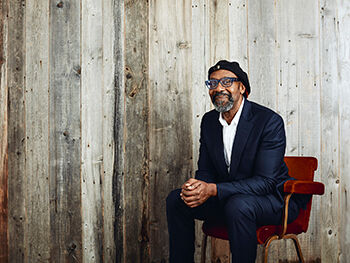UNIVERSITY NEWS LAST UPDATED : 10 MARCH 2022

A second year of industry fellowships totalling £15,000 to support short-term research into diversity in media has been announced by Birmingham City University’s Sir Lenny Henry Centre for Media Diversity.
The fellowships are open to five experienced media practitioners from across the UK to produce research that better informs policy and practice addressing diversity deficits across different sectors of the media industry.
The Sir Lenny Henry Centre for Media Diversity (LHC) is a research centre bringing together the expertise of established media professionals and academics.
Since launching in March 2020, LHC has released a number of notable and impactful research publications, including the Black in Fact report into black representation in UK documentaries, B.A.M.E: A report on the use of the term and responses to it for the BBC, Black to Front report for Channel 4, and academic and industry journal Representology, which explores diversity in media.
Nina Robinson, who secured a fellowship in her capacity as a longstanding radio reporter and producer, said, 'My report on ‘Diversity of Senior Leaders at BBC Radio News and Current Affairs’ uncovered important findings around the existence of not just all-white senior leader teams but also all-white newsrooms covering large areas of the UK.
“There is more academic work here now to build upon, which is what the initial industry fellowship funding has allowed me to think about and pursue. For me, it was important to contribute to the ‘institutional memory’ on diversity issues to avoid past mistakes and provide evidence of the true state of progress, as well as offer solutions.”
Each successful industry fellowship applicant will be teamed with an academic mentor with research to be completed by Friday 1 July 2022.
Completed research will be published on the LHC website and considered for publication in the journal Representology.
Cherish Oteka, award-winning documentary filmmaker and 2021 fellowship recipient, said, “The 2021 grant provided a rare, important and much-needed opportunity for the exploration of Black representation in UK documentaries.